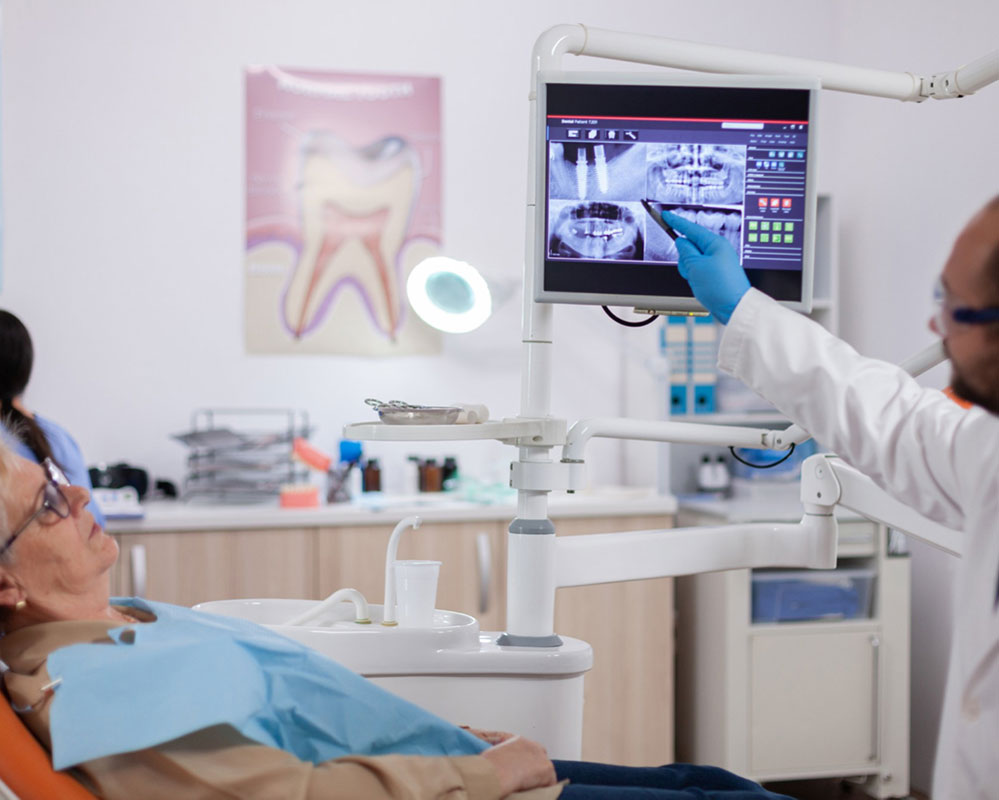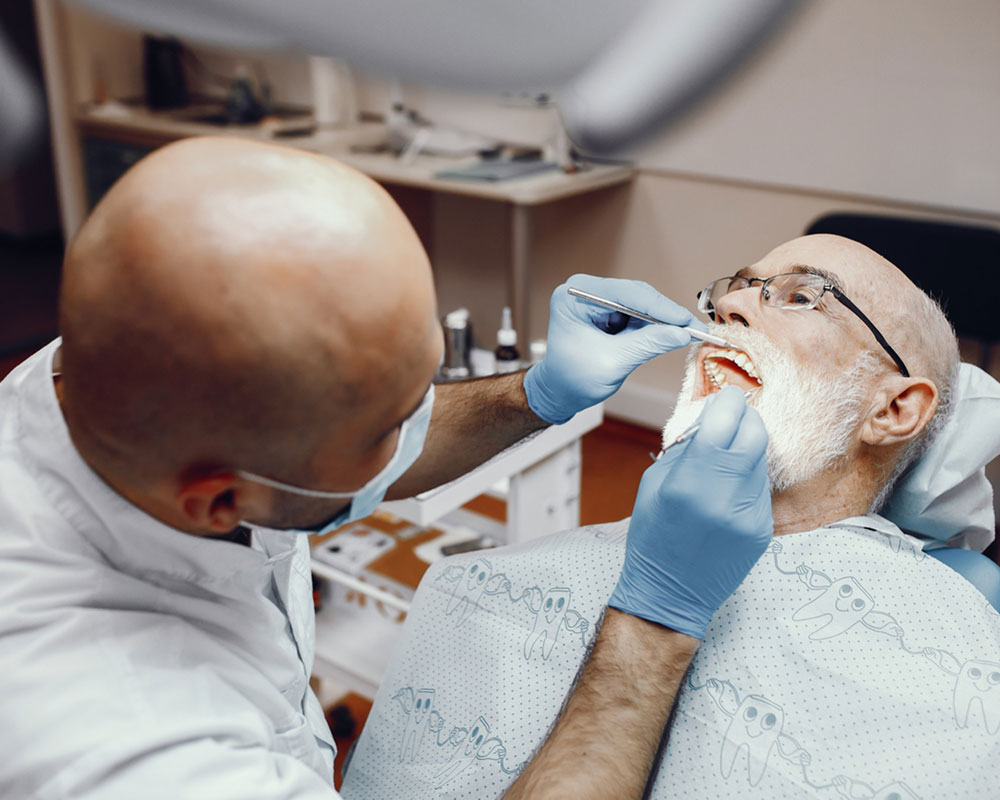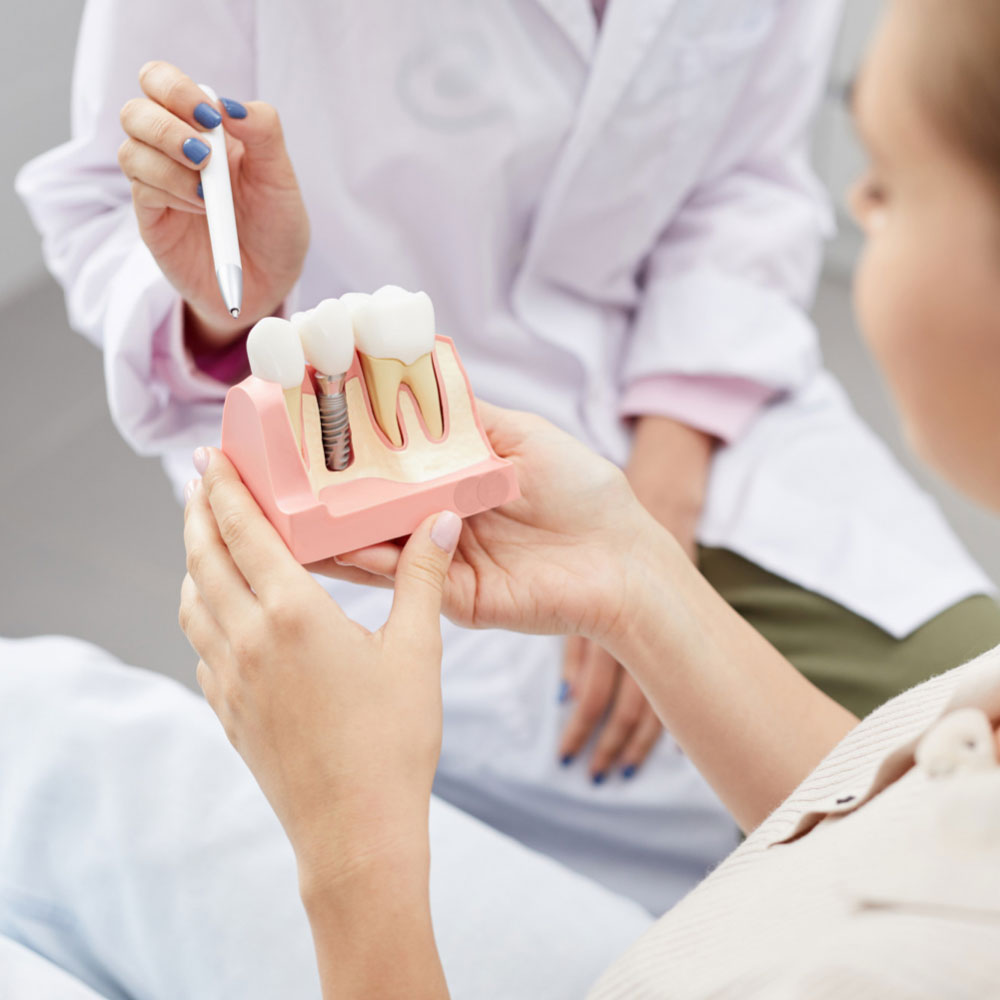
Infected dental implants emergency appointment
Dental implants are functionally and aesthetically the most superior teeth replacement alternative. A dental implant is a screw-shaped titanium surgical fixture anchored to the bone and acts like a foundation for a crown, dental bridge and denture placement. Dental implants are built to last a lifetime with proper care. However, faulty oral hygiene and lack of good post-operative care can predispose dental implants to various infections.

Caring for dental implants
Proper care is imperative to maintain the health of your dental implants and ensure that they integrate well with the jawbone. Read ahead as we elaborate on the ways through which you can care for your dental implants.

Practice proper oral hygiene
This advice may not be new, but it’s baffling how many people still take practising proper oral hygiene lightly. To maintain your implants ensure you are brushing your teeth twice a day with a soft-bristled nylon toothbrush. Use gentle motions around the implants and ensure it is adequately cleaned. It is also essential to use a non-abrasive toothpaste.
Use floss to ensure you are getting rid of all the deposits around the implant. You can use unwaxed tape or particular implant specific floss as recommended by our dentist. You can also add a mouthwash to supplement your regular oral hygiene practices.

Avoid hard and sticky foods
Chewing or biting down on hard and sticky foods can damage your implants. Try to avoid ice, hard candies, caramel, dried fruits and the likes to ensure your dental implants stay healthy.

Avoid smoking and alcohol
Once dental implants are placed, it takes 3-6 months for them to heal and integrate with the jawbone. Smoking during this time could prove detrimental to the healing of dental implants and is best avoided. In addition, drinking alcohol regularly has been shown to delay healing.

Schedule regular dental visits
Schedule timely dental visits to get your implants checked and ensure proper healing.
How to recognise if your dental implant is infected?
If you are experiencing any of the symptoms mentioned below, your dental implant may be infected. Keep an eye for the following symptoms:
- Loosening of dental implants.
- The gums around the implant get red and puffy.
- Your gums bleed when you try to brush.
- Foul taste in the mouth.
- Bad breath.
- Pain and discomfort in the gums surrounding the implant which can also radiate to involve the entire jaw.
- Visible pus from the area where dental implant is placed.
- If the infection progress, you may also have a fever and a general feeling of illness.
If you experience these symptoms, schedule an emergency appointment with us at our dental clinic. Delaying treatment for infected dental implants can lead to loss of the implant and associated complications that arise with them.

What happens when a dental implant gets infected?
Dental implants are surgical fixtures placed inside the jawbones. Once placed, they are left inside the jawbone over a period of 6 months, where the implants integrate with the jawbone. This is important for the fixation of the implant.
If your dental implant gets infected, it will fail to integrate with the bone and remain loose. Eventually, the implant will fall off, and it has to be replaced with a newer one. This is known as an implant failure, where the implant fails to integrate with the jawbone. Sometimes, dental implant infections also damage the remaining jawbone in the area, making it challenging to place a new implant over the same area.

What to do when implants get infected?
If your dental implants get infected despite taking all the preventive measures, schedule an emergency appointment with our dentist. Do not delay visiting a dentist if you notice any symptoms associated with infected dental implants. Bacterial deposits cause dental implant infections like peri-implantitis and peri-implant mucositis. Removal of these bacteria becomes a necessity for appropriate control of the infection. Ensure you have excellent oral hygiene and reach out to our dentist on the first sign of infection. Early detection may help save the dental implant.

Treatments for infected dental implants
Treatment for infected dental implants focuses on the removal of bacterial plaque and the elimination of infection. Our dentist will perform complete oral prophylaxis to remove the bacterial plaque in the mouth. The infected tissues around the implant are debrided and with local antibiotic administration. They may also start you on oral antibiotics to get the infection under control.
If the infection has impacted the jawbone, our dentist may suggest a bone graft to rebuild the lost bone structure and stabilise the implants. In addition, they will instruct you on proper oral hygiene practices.

Possible complications for dental implant infection
Dental implant infections can lead to dental implant failure. This is because the dental implant does not integrate with the jawbone and will eventually fall off. The infection also leads to jawbone destruction and affects future implant and tooth replacement options. Apart from that, if it remains untreated, bacteria responsible for dental implant infection can find a way to enter the bloodstream where it can infect internal organs leading to septic shock, which is a life-threatening condition.
If you are experiencing any of the symptoms of infected dental implants, schedule an appointment at our dental clinic today. For further information, please reach out to us, and our team of excellent dental professionals will be there to assist you in your journey to excellent oral health.
